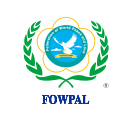Fostering Conscience-Driven Global Citizenship Education to
Change Our Future and Accelerate Sustainable Development
Dr. Hong, Tao-Tze
Zhang-men-ren of Tai Ji Men
Vice President of the Association of World Citizens,
NGO in Consultative Status with ECOSOC and Associated with the UN DPI
President of the Federation of World Peace and Love
January 24, 2023
Distinguished Guests, Educators, Dear Friends, Ladies and Gentlemen,
Good day!
The International Day of Education was adopted in 2018 and is observed annually on January 24, in recognition of the key role education plays in facilitating a sound and robust society, as well as promoting world peace and sustainable development. The theme for this year (2023) is "to invest in people, prioritize education.” UN Secretary-General Antonio Guterres once said, “We must do far more to advance Sustainable Development Goal 4, to ensure inclusive and equitable quality education and promote lifelong learning opportunities for all.” The SDG 4 reaffirms that "quality education" is the foundation for higher standards of living and sustainable development. It also calls for the empowerment of learners, enabling them to acquire necessary knowledge and skill sets for sustainable development, as well as the advancement of a culture of peace and non-violence, the promotion of global citizenship, and appreciation of diverse cultures and their contributions to sustainable development.
Awareness is a force, and education is the key to unlocking that force. The right to education is a human right, and it is crucial for nations to give their citizens access to inclusive, equitable, and high-quality educational resources in order to combat poverty, advance equality, and accelerate progress toward all sustainable development goals. In response to COVID-19, numerous classes were shifted online, which exacerbated the problems of uneven distribution of resources. This resulted in underprivileged children losing access to an education and even being forced into child labor. Additionally, the negative impacts of war on the world continue to increase, depriving children in war zones of their right to education, and ongoing national conflicts are affecting the future of an entire generation of children.
Inspiring individuals with conscience education is crucial if we wish to support the sustainable development of the Earth through education, from guaranteeing children's most fundamental right to education to offering quality and diverse lifelong learning opportunities. Conscience education is essential to all ages, professions, regions, and cultures, and it is the key to a positive cycle of growth in a learning environment for all ages.
Every person residing on the planet is a direct victim of the environment's decline. The world's citizens are all accountable for reversing the deterioration of the Earth. Awakening everyone's conscience and subsequently the conscience of governments and national leaders is the key to halting environmental degradation. When governmental decisions and policies are made with the protection of everyone's right to life, health, and education in mind and prioritize the best interests of humanity, there is a chance to achieve ecosystem restoration.
The secret to achieving the sustainable development goals for the Earth is to make high-quality, conscience-based education available to all people around the world. We can achieve global sustainability and create a more secure, inclusive, and peaceful future when governments, through policy reform, allow high-quality education to be guided by conscience, encourage respect for and protection of cultures, provide access to the fundamental right to education for everyone, and ensure that people around the world are motivated by conscience-driven education to become decent global citizens who enjoy democratic lifestyles and human rights. To build peace and harmony and change our future, we urgently need to rebalance the relationships between people and between humans and nature, and we must place a greater emphasis on human rights, equality, inclusion, and democratic participation in our lives and technology.
Conscience-based global citizenship education is a holistic education of health, love and peace, respect and harmony, global vision, and oneness.
I proclaimed the Declaration of World Citizens on April 1, 2016. Article 6 of the Declaration encourages people to “nourish and educate young generations with conscience, as well as place emphasis on the education of character, human rights and life.” The education of character, human rights, and life is at the core of quality education for world citizens.
Character education focuses on the cultivation and development of the heart. It inspires people to embody virtues such as kindness and compassion. It is essential to everyone's interactions with others.
Human rights education aims to promote justice and protect human rights. The implementation of human rights protection affects everyone’s life and social harmony and determines the rise and fall of regimes as well as the achievement of peace.
Life education is the process of self-actualization, change, seeking a deeper understanding of life, and self-improvement. When we are able to benefit others and improve ourselves to finally reach the ultimate state to which people of all faiths aspire, we can transcend life and death and realize the value of life.
On the International Day of Education, we would like to express our heartfelt admiration and gratitude to loving and selfless educators. We also hope that conscience-driven global citizenship education will continue to grow across the planet, creating a better, healthier, and more balanced world for the Earth and future generations.
Thank you all!
